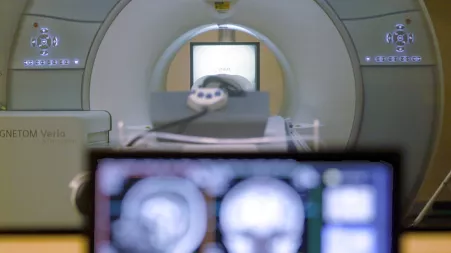An online training programme in Australia aims to help women who suffer from chronic pelvic pain feel less abandoned.
Vagenius Training also wants to help general practitioners (GPs) to understand persistent pelvic pain better.
According to the Royal College of Obstetricians and Gynaecologists (RCOG) in the UK, long-term pelvic pain affects around one in six women at some point in their lives.
Chronic pelvic pain is any pain in the lower abdomen or pelvis lasting more than 6 months.
Louise Richardson-Self, a chronic pelvic pain patient in Hobart, Australia, uses stretching, medication and an anti-inflammatory diet to manage these symptoms which are a consequence of her endometriosis and adenomyosis.
"Sometimes I experience burning and searing pain, sometimes I experience deep aching, sometimes I have muscle spasms and a kind of bruising sensation,” said Richardson-Self.
Richardson-Self said it was not easy to get the diagnosis.
"It blows my mind that it took until the age of 33 to get a diagnosis of endometriosis when it runs in my family," she told Australia’s public news service, ABC News.
"I had to plead with people, to get them to take me seriously and bother to look,” she added.
Experts say chronic pelvic pain is often underdiagnosed and undertreated. According to research done by the University of York, endometriosis takes an average of 6.6 years to be diagnosed worldwide, with delays of up to 27 years reported in the UK.
"When pain is affecting someone's function on a day-to-day basis where they can't go to work, they can't school, they can't parent their family as well as they can, that's not normal," Emily Ware, a women's health GP and educator at Vagenius Training, said.
Ware says she didn’t learn a lot about chronic pelvic pain during her medical training.
"These patients need a team but the GP is the perfect person to direct that team and direct that care, follow the patient up well,” Ware added.
The founder of the training programme says it’s also designed to disprove myths and misconceptions.
"People are still being told even today to have a baby to cure endometriosis," said Rachel Andrew, a physiotherapist, educator and founder of Vagenius Training.
Australia was the first country to introduce a national action plan for endometriosis launched in 2018.
In 2023, the Australian government opened 20 endometriosis and pelvic pain clinics across the country, with a planned budget of more than 700,000 Australian dollars (€421,000) per clinic over four years, according to the country’s Ministry of Health and Aged Care.
For more on this story, watch the video in the media player above.
Disclaimer: The copyright of this article belongs to the original author. Reposting this article is solely for the purpose of information dissemination and does not constitute any investment advice. If there is any infringement, please contact us immediately. We will make corrections or deletions as necessary. Thank you.




